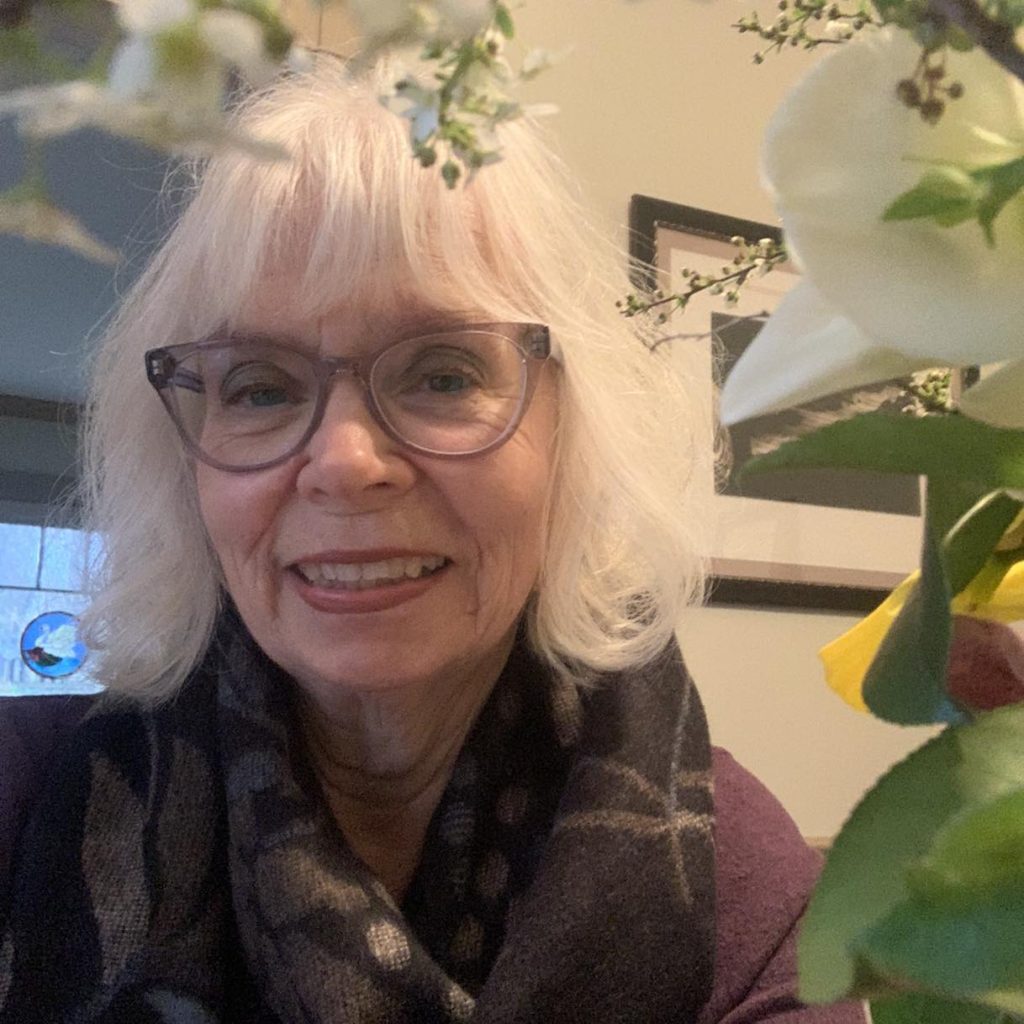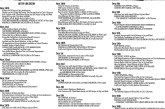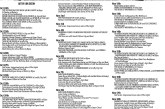
by Harrison Young
Linda Parsons is a local poet, playwright and editor who shines in both word and heart.
She’s written plays since the ‘80s, including a musical early in her career about humanitarian Albert Schweitzer. We first met in 2016 through the Tennessee Stage Company’s New Play Festival.
It was then when I acted in the table readings and stage reading of her play “Under the Esso Moon,” one of her most autobiographical works, written about living above a Standard Oil station as a girl.
When her hands aren’t busy writing creatively, they’re working in her garden with plants like her favorite flower, the peony.
The following is the transcription of a recent conversation I had with Parsons.
BLANK Newspaper: What made you want to be a writer?
Linda Parsons: In high school, I had a couple of very influential teachers. One was a speech and theater teacher, and the other was our literature and English teacher. They opened me up to literature and to drama. That was the beginning, and I realized I’m in love with language and with story.
BN: A lot of your writing carries with it a deep sincerity. How would you describe your work?
LP: I’m always trying to write my own story in various ways. I’m writing toward reconciliation, which is a big focus in my life, and it comes out in everything I write.
BN: Who are your influences as a playwright?
LP: I always go back to Arthur Miller. “Death of a Salesman” is my favorite play. My father was a salesman, and what Miller does in that play is something I love to do and I’m so drawn to. It’s like Tennessee Williams’ memory plays, where the past interacts powerfully and poignantly with the present.
BN: How does your poetry influence your playwriting?
LP: I’ve actually thought a lot about that. Poetry is not only the words – it’s the music in the words, the rhythm of the words, the cadence – and those are some of the same things that you’re concerned about in writing dialogue for the theater, so they actually work very well together.
BN: You received three grants writing plays at the Flying Anvil Theatre, including one grant with the Hammer Ensemble, the theater’s social justice wing. What led you to write so directly about particular causes?
LP: These were director John Ferguson’s ideas and important issues he wanted to address. Our first play, all developed with the Hammer Ensemble, “The Pall: In the Shadows of Human Trafficking,” is a difficult subject. Knoxville is a hub for trafficking because of all the interstate systems. The two other plays were ripe from the news with school gun violence for “Lockdown” and “Light Years: A Journey With Alzheimer’s.” John wanted to create something about Alzheimer’s, dementia and how different families deal with it differently. My dad had vascular dementia, so I had experience. It came together beautifully. We did have sponsorship from the Alzheimer’s Association during the process. Working with the Hammer Ensemble was an incredible learning experience. It was really intense, but I loved it.
BN: You write about history a lot – sometimes modern history like with “The Knoxville COVID Story Project,” and sometimes about much further back. Are you regularly interested in history?
LP: I love how history connects things. It’s completely cause-and-effect. All the divisiveness happening in our country and the world right now – all the seeds go back generations. It’s fascinating to me, and I’m always amazed when people say, “Oh, I hate history.” I respond, “You’re living history! What do you mean?”
BN: What are you working on now?
LP: My current play “A Thousand Suns” is one of the most important things I’ve ever written. It’s crucial for me to try to find a home for it.
BN: I saw that with Marion Brown’s Circle reading series, and it has a local connection in its story. Can you tell us about that?
LP: It’s based on a family story. My stepmother’s brother joined the Navy post-World War II and was stationed in Japan after the American occupation. He returned to Knoxville with a Japanese wife and a baby girl. Their daughter and I were friends, and I always wondered how her mother felt about leaving her family behind in Japan. Coming to Tennessee
and facing the prejudice of the 1950s and ‘60s … this was awful but understandable after the war. The play brings the war to a personal level, and it’s set in Oak Ridge with the sailor’s mother and aunt having worked on the Manhattan Project. The central question of the play is, “Can sworn enemies form a family?” It’s very timely regarding acceptance of ‘the other’ and finding peace despite the scars and casualties of war, even though it’s set in the 1950s. And, again, it’s all about reconciliation and understanding that we’re all connected.
You can read Parsons’ latest updates at facebook.com/lindawordgardener







